
The largest provider of business education in Africa and one of the largest in the world
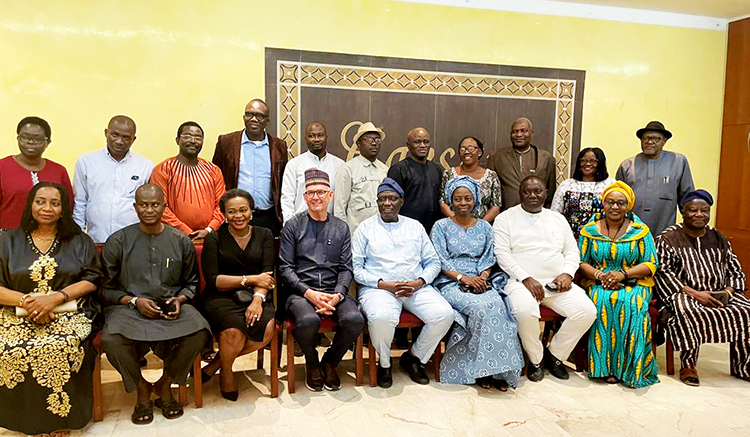
Delegates at NOUN’s farewell function for Prof Paul Prinsloo
Following a four-day workshop organised by the National Open Distance University of Nigeria (NOUN), Unisa’s Prof Paul Prinsloo was appointed by NOUN Vice-Chancellor, Prof Olufemi Peters, to participate in the research and implementation of learning analytics. The workshop took place in Jabi, Abuja, at NOUN’s headquarters.
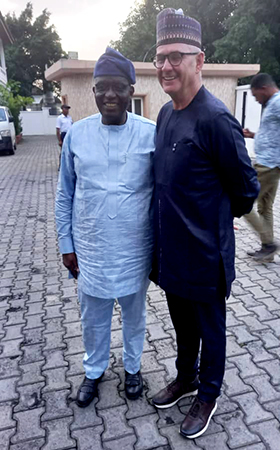
From left: Professors Olufemi Peters (NOUN VC) and Paul Prinsloo (NOUN Visiting Scholar & Unisan)
The appointment was presented after Prinsloo’s guest lecture at the workshop titled Institutionalising Learning Analytics. In 1995, Prinsloo’s eminence in distance education was also recognised at the Carl von Ossietzky University of Oldenburg, Germany, where he is also a visiting professor.
With his new appointment, Prinsloo is expected to visit NOUN twice yearly for seminars and engage with NOUN’s staff members and students. He firmly believes that implementing learning analytics at NOUN will open more collaborative research opportunities.
"NOUN is the leader of open distance learning in West Africa," says Prinsloo. "I feel honoured to be invited as a visiting professor at this prestigious African university," he says. Again, Prinsloo adds that NOUN’s broad adoption of learning analytics would be the first development in Africa, and he is privileged to be part of that journey. He further says the project is linked to NOUN’s digital transformation policy.
Prinsloo sees this academic opportunity as a stepping stone for Unisa’s research and education. He believes that learning analytics can offer considerable potential for the university. "It will allow us to offer more appropriate, responsive and personalised student support to our students," he notes.
Hailing from Stilfontein, Northwest Province, Prinsloo have always been curious from a young age. Even today, his deep passion for learning has not changed. His academic interests in theology, business management, law, art history and fine arts gave him access to a broader range of perspectives. In addition, he explored various roles and contexts in the professional setting, contributing to a comprehensive understanding of Open Distance e-Learning (ODeL) from the staff to the student level.
Though his expertise has gained prominence in his field, Prinsloo acknowledges that there is still more to learn about ODeL. For instance, there are challenges around student data that can cause learning analytics snags. "Like other African universities, the student data NOUN has is analogue data," he notes.
He explains: "One of the first steps is to determine what data is available, in which formats, where and how it is stored, who has access to it, and under what conditions." He continues: "It is crucial also to establish infrastructure, human resource capacity, design responsive systems and processes in response to analysis and trends."
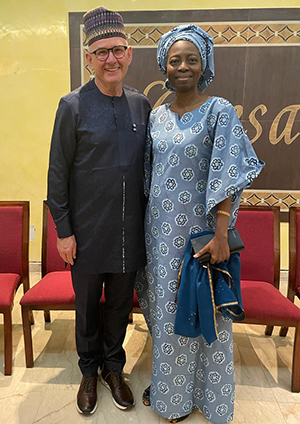
Professors Paul Prinsloo (Unisa) and Monioluwa Olaniyi, Deputy VC, Technology, Innovation and Research (NOUN)
Even though open universities aim to provide high-quality, cost-effective learning at scale, Prinsloo stresses that the distance educators need to balance many variables to provide quality learning experiences, especially in the context of increased workloads, electricity and internet connectivity constraints. As an ODeL research professor, Prinsloo sees a huge potential of offering education to those without access to education.
Engaging with NOUN gave him insight into institutional approaches to curriculum development. Lately, he has visited Ahmadu Bello University in Zaria, Northern Nigeria. He says the visit exposed him to the global emphasis on preparing graduates for the world of work locally and internationally.
As learning analytics occurred in the Global North as a distinct research focus, Prinsloo mentions that the Global South has, up to now, not participated, for several reasons, in theorising and researching learning analytics. Hence his collaboration with NOUN will assist in committing to learning analytics. Furthermore, he says, this will allow African researchers to claim their rightful place in the theorisation and application of learning analytics and, as such, deprovincialise the learning analytics discourses and practices.
Prinsloo states that his role in NOUN will be advantageous to Unisa. He says: "Unisa is dedicated to finding answers to Africa’s educational and developmental problems." However, he asserts that contrary to popular belief, technology is not an unqualified good and not the solution to every pedagogical problem. "I do, however, believe that integrating appropriate technologies in a particular pedagogical strategy can increase the quality of teaching and learning, as well as positively impact student retention and success," explains Prinsloo.
He adds: "Life, in general, is digitised and datafied. Hence the collection, analysis and use of personal and behavioural data have already become the new 'normal'." Prinsloo underscores the importance of algorithmic decision-making systems. He says it plays an ever-increasing role in our lives, from our applications for life insurance, bank accounts or visas for travel.
In conclusion, Prinsloo is honoured to be appointed as a visiting professor at NOUN.
* By Lesego Chiloane-Ravhudzulo, Journalist, Department of Institutional Advancement
Publish date: 2022/11/16
 Unisa celebrates a project of hope, dignity and student success
Unisa celebrates a project of hope, dignity and student success
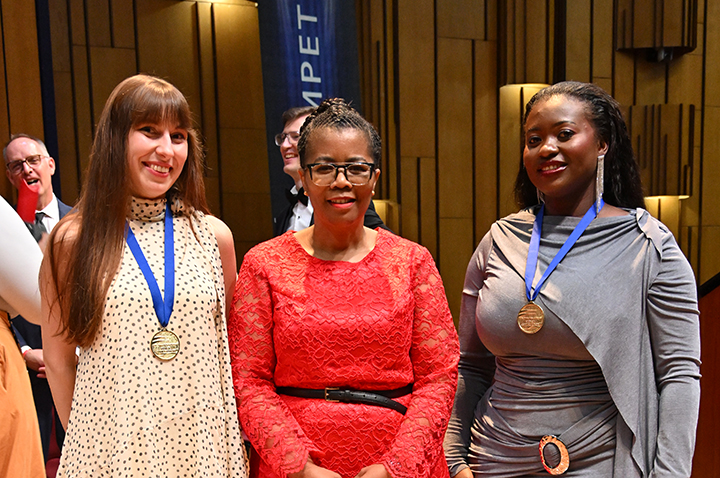 Women vocalists take top honours at Unisa's globally renowned showcase
Women vocalists take top honours at Unisa's globally renowned showcase
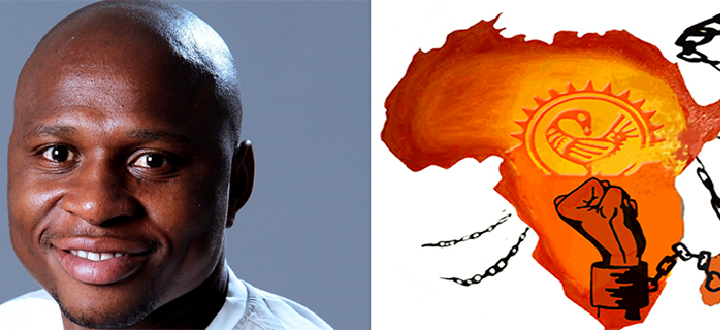 African wealth is dependent on investment in education and development
African wealth is dependent on investment in education and development
 Unisa celebrates matric result success at Correctional Services ceremony
Unisa celebrates matric result success at Correctional Services ceremony
 Unisa ICT Director recognised among acclaimed IT leaders
Unisa ICT Director recognised among acclaimed IT leaders